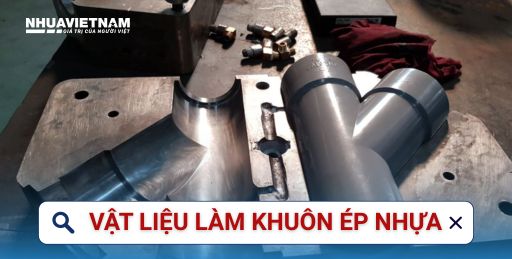In the engineering plastics industry, injection molds are a decisive factor in determining the quality, precision, and overall performance of finished products. However, to ensure long-lasting, stable mold performance that meets strict production standard plastic injection molding materials is a foundational element that cannot be overlooked. In this article, Nhua Viet Nam takes a deep dive into popular mold materials—analyzing their mechanical properties, durability, machinability, and real-world applicability in modern injection molding processes.
Popular plastic injection mold materials
P20 Steel
P20 is among the most widely plastic injection molding materials used mold steels in plastic injection manufacturing, ideal for medium production volumes (300,000–500,000 cycles). As a pre-hardened tool steel, it eliminates the need for post-machining heat treatment, saving time and facilitating ease of CNC and EDM machining.
With a hardness range of 28–32 HRC, P20 offers decent strength, polishability, and moderate corrosion resistance. It is commonly used for consumer plastic products, packaging, household appliances, and general-purpose technical components. However, for applications demanding high thermal endurance or ultra-smooth finishes, P20 molds may require replacement after a number of cycles.
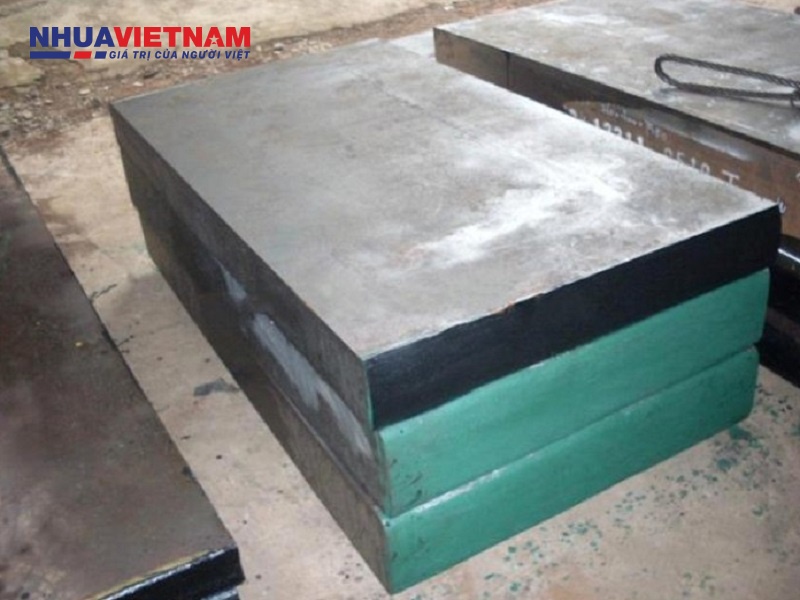
P20 steel is one of the most commonly used materials for plastic injection molds.
H13 Steel
H13 is a chromium-molybdenum-vanadium alloy tool steel known for excellent heat resistance and wear durability. After heat treatment, plastic injection molding materials it reaches a hardness of 48–52 HRC, allowing molds to withstand high pressure and temperature in continuous molding operations.
H13 is the material of choice for molds used in thick-walled, complex parts or mass production exceeding 1 million cycles. It is commonly applied in industrial components, automotive parts, and technical items made from engineering plastics like PC, POM, or PA66. Its polishability also makes it suitable for high-finish plastic products.
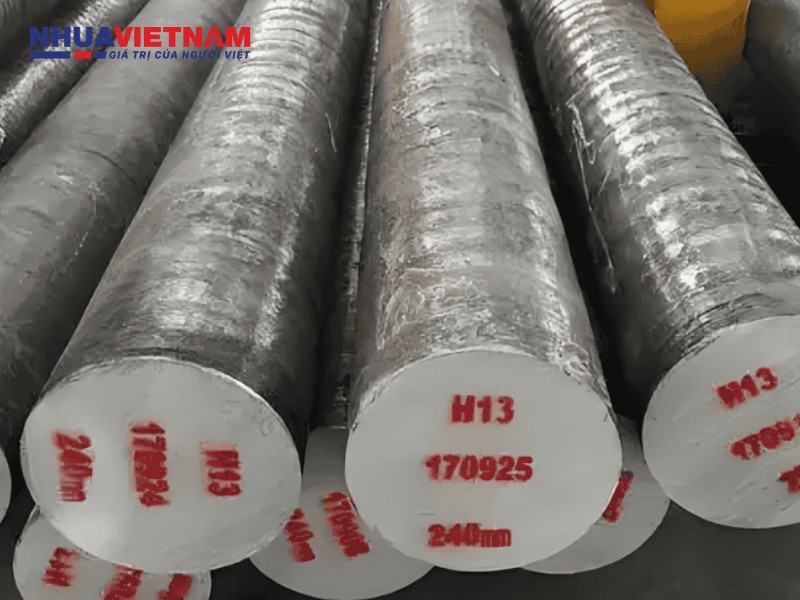
H13 is a type of steel known for its exceptional heat resistance and outstanding wear durability.
S136 Stainless Steel
S136 is a premium-grade stainless steel developed specifically for mold manufacturing. Its standout features include excellent corrosion resistance, ease of polishing, and long-lasting gloss—ideal for high-aesthetic plastic products such as cosmetic containers, medical device housings, electronics, or premium homeware.
With a post-treatment hardness of up to 50–52 HRC, S136 ensures dimensional accuracy and resists deformation during extended use. It extends mold life, reduces maintenance costs, and performs reliably in high-humidity environments or with corrosive plastics like PVC.
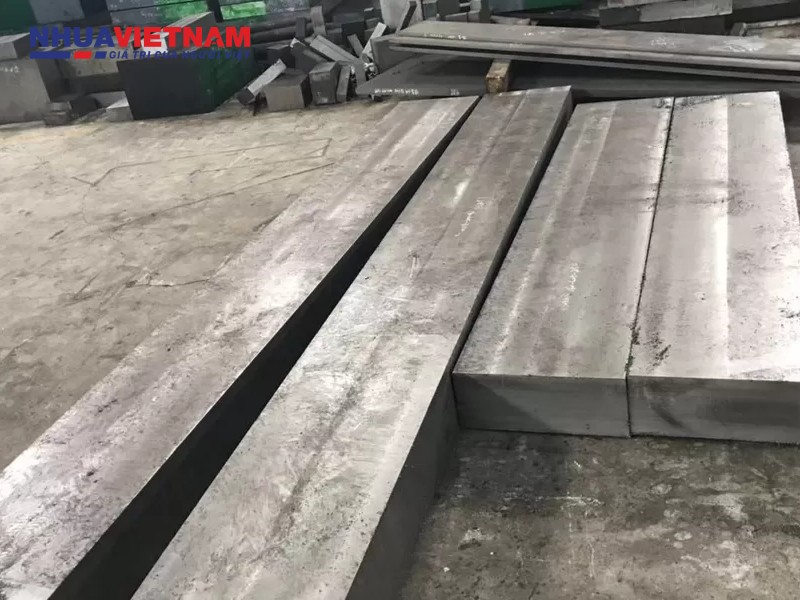
S136 is a type of steel specifically engineered for the mold-making industry.
Aluminum
Aluminum is a versatile choice for rapid mold prototyping or small-batch production. Its key advantages are light weight, excellent machinability, and superior thermal conductivity, allowing for faster cooling and shorter cycle times.
However, with a hardness below 100 HB, aluminum is prone to wear and unsuitable for molds requiring more than 10,000 cycles plastic injection molding materials .It is best suited for R&D projects or quick-turnaround orders with tight budgets. Surface treatments like anodizing can improve aluminum mold life to some extent, but it still lags behind steel in durability.
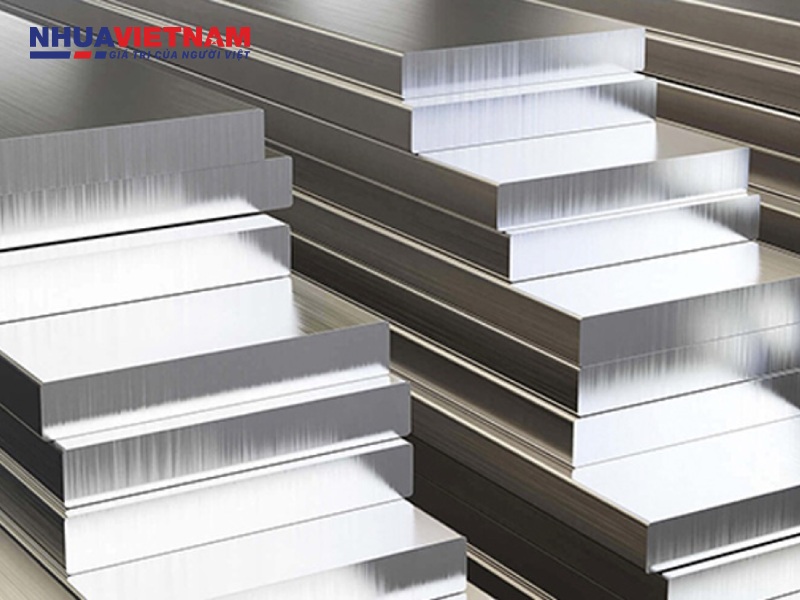
Aluminum is lightweight, easy to machine, and offers excellent thermal conductivity.
Beryllium Copper (Cu-Be)
Beryllium copper is plastic injection molding materials a high-end mold material favored for components requiring rapid heat transfer, such as cores or inserts. Its standout advantage is thermal conductivity 4–5 times higher than steel, enabling faster cooling, shorter cycle times, and better surface quality.
Cu-Be is typically paired with steel in molds for thick-walled or complex parts that are prone to warping without uniform cooling. However, due to its high cost and the toxicity of beryllium during machining, this material is reserved for critical areas rather than full mold construction.
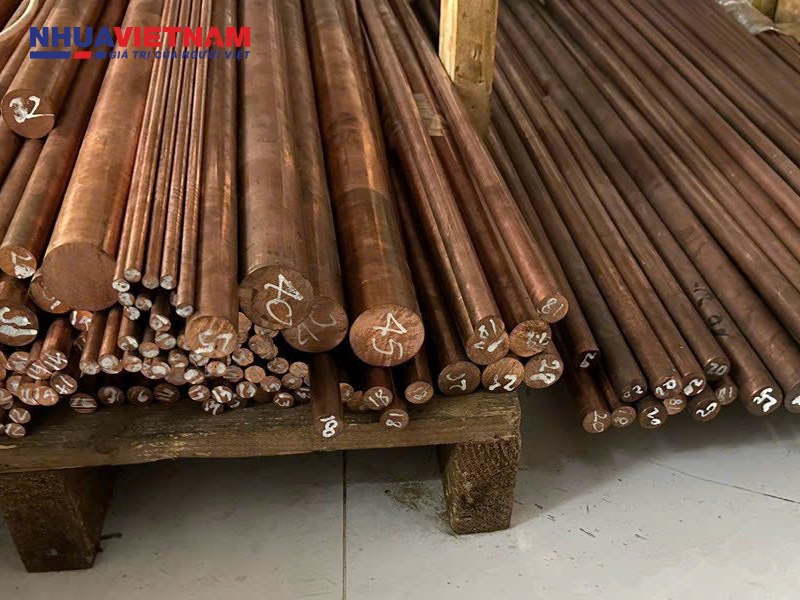
Beryllium copper (Cu-Be) is a preferred material for mold components that require high thermal conductivity.
Key Factors in Choosing Mold Materials for Plastic Injection Molding
There is no plastic injection molding materials single mold material that is optimal for every application. When selecting a material for plastic injection molds, several factors must be considered: the type of plastic being molded (PP, ABS, PC, POM, etc.), the complexity of the part’s geometry, surface finish requirements, product hardness, part weight per cycle, and the expected mold lifespan in production cycles.
For products that require high dimensional accuracy and a flawless finish—such as electronics, automotive components, or medical devices—the mold material must offer superior dimensional stability, corrosion resistance, and long-term durability under high injection pressure.
High-Precision Mold Solutions from Nhua Viet Nam
At Nhua Viet Nam, we understand that molds are the foundation of quality plastic products plastic injection molding materials . We offer professional mold-making services using certified imported materials and a full range of advanced machining technologies including CNC, EDM, and wire cutting systems. Each mold is custom-designed to match our client’s production needs, optimizing cost and enhancing production efficiency.
With the capacity to deliver up to 5 million parts per order, we are a trusted partner for both domestic and international clients. Our factory operates 24/7, backed by a strict quality control process from raw material input to final product output, ensuring consistent quality that meets ISO standards and international technical requirements.
We are committed to on-time delivery, flexible handling of all order sizes, and cost-effective solutions. Nhua Viet Nam is ready to accompany businesses on their path to global expansion and sustainable development.
Conclusion
Selecting the right mold material plastic injection molding materials is a crucial first step in ensuring long-term product quality, production efficiency, and profitability. If your business is seeking a capable partner in mold consultation, design, and high-precision manufacturing, connect with Nhua Viet Nam for end-to-end technical and production support. We don’t just manufacture plastic products — we help build a reliable and professional engineering plastics supply chain in Vietnam.
Contact Information
- Hotline: +84 886 723 131
- Email: info@vnplastic.vn
- Address: No. 56, Street 455, Group 4, Hoi Thanh Hamlet, Binh My Commune, Ho Chi Minh City.

